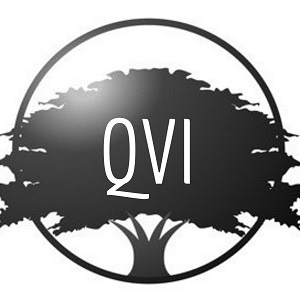Costco Wholesale (NASDAQ: COST)
Quality Value Investing Research Report | Updated Coverage | March 2024
Summary:
Costco Wholesale is the large-cap stock of a legendary company surrounded by a wide moat in the consumer staples sector’s merchandise retail industry.
Despite low profit margins typical of a large-volume retailer, Costo Wholesale’s management delivers sector-beating revenue growth and returns on equity and invested capital.
However, in a classic asymmetrical quality and value comparison, the stock remains overvalued in shareholder yields and valuation multiples.
Nevertheless, share price downside risks are low, keeping the stock attractive to quality-driven investors with a low-cost basis holding in the stock.
Access your Quality Value Investing (QVI) Glossary of Investing Terms and Metric Targets when referencing this research report. Unless noted, all data presented is sourced from Seeking Alpha Premium as of the market close on March 19, 2024, and intended for illustration only.
The 44 holdings in the QVI Real-Time Stock Picks have collectively achieved alpha for 15 years by focusing research and analysis on a company’s current wealth and its share price’s present value. In other words, just the facts without unreliable predictive analysis typical of the buy side or the business modeling overkill of the sell side Wall Street analysts.
In this updated QVI Research Report, we’ll look at the Expanded Real-Time Stock Picks consumer staples sector holding Costco Wholesale Corporation to see if it continues to meet Quality Value Investing’s investment criteria based on our checklist analysis of the business’s current wealth and its stock’s present value.
Costco Wholesale: Company Current Wealth
To uncover the company’s current wealth, QVI defines the value proposition, measures returns on management, and assesses enterprise downside risks.
Value Proposition
QVI Research Report’s value proposition section provides a brief synopsis of the company’s business model, major-exchange listing, stock symbol, market capitalization, and dividend-paying status. In addition, it defines the competitive advantages of a company’s products or services to its customers compared to the industry, including its economic moat.
Costco Wholesale COST 0.00%↑ is a dividend-paying large-cap stock in the consumer staples sector’s merchandise retail industry. COST was added to the QVI Real-Time Stock Picks on January 28, 2022, at a split and dividend-adjusted $473.99 a share.
Costco Wholesale Corporation, together with its subsidiaries, engages in the operation of membership warehouses in the United States, Puerto Rico, Canada, Mexico, Japan, the United Kingdom, Korea, Australia, Taiwan, China, Spain, France, Iceland, New Zealand, and Sweden.
The company offers branded and private-label products in a range of merchandise categories. It offers merchandise, such as sundries, dry groceries, candies, coolers, freezers, deli, liquor, and tobacco; appliances, electronics, health and beauty aids, hardware, garden and patio products, sporting goods, tires, toys and seasonal products, office supplies, automotive care products, postages, tickets, apparel, small appliances, furniture, domestics, housewares, special order kiosks, and jewelry; and meat, produce, service deli, and bakery products. The company also operates gasoline, pharmacies, optical, food courts, hearing-aid centers, and tire installation centers; and offers business delivery, travel, grocery, and various other services online. It also operates e-commerce websites.
The company was formerly known as Costco Companies, Inc. and changed its name to Costco Wholesale Corporation in August 1999. Costco Wholesale was founded in 1976 and is based in Issaquah, Washington, USA.
Economic Moat
Alpha-rich investors target companies with clear competitive advantages from their products or services. An investor can streamline an enterprise’s value proposition with an economic moat assignment of wide, narrow, or none.
For example, Morningstar assigns Costco Wholesale a wide moat rating.
QVI’s value proposition elevator pitch for Costco Wholesale:
Costco emanates its brand name by selling inventory at or near cost. However, its membership fees, willingly paid by its loyal members, drive its retail-level profit margin with predictability.
Due Diligence Resources
For a more in-depth analysis of the all-important value proposition, visit Costco Wholesale’s investor relations webpage and its most recent Form 10-K Annual Report submitted to the US Securities and Exchange Commission or SEC.
QVI’s value proposition rating for Costco Wholesale: Bullish.
Returns on Management
QVI Research Report’s returns on management or fundamentals section measures the performance strength of the company’s senior executives by analyzing revenue growth, net profit margin, and returns on equity and invested capital.
Revenue Growth and Net Profit Margin
Per the chart below, Costco Wholesale’s trailing three-year annualized revenue growth was double-digit, outperforming the consumer staples sector’s +3.80% median growth. Moreover, the company’s topline growth was +6.16% for the most recently reported twelve months.
Farther down the income statement, Costco Wholesale’s three-year, low-single-digit net profit margin underperformed the sector’s median net margin of +5.07%.
Returns on Equity and Invested Capital
Costco Wholesale’s senior management produced a three-year double-digit return on equity or ROE above QVI’s targeted threshold and well ahead of the sector’s median ROE of +11.24%.
Stock buyback programs often elevate ROE. For example, in January 2023, Costco Wholesale’s board of directors approved $4 billion for repurchases, replacing a previous authorization that bought back $1.4 billion. The current program expires in January 2027. Are they repurchasing the stock at value prices for its shareholders?
Costco Wholesale’s three-year return on invested capital, or ROIC, was above QVI’s threshold and embarrassed the sector’s median ROIC of +6.63%. In addition, Costco’s ROIC doubled its weighted average cost of capital, or WACC, of 10.34%, demonstrating that its senior executives are superior capital allocators. (Source of WACC: GuruFocus)
Despite underperforming the sector in profit margin, Costo Wholesale’s double-digit three-year revenue growth and sector-beating returns on equity and invested capital reiterate the management team’s long-standing excellence in King County, Washington.
QVI’s business fundamentals rating for Costco Wholesale: Bullish.
Next, we’ll look at the company’s returns on management chart, enterprise downsize risks, the stock price’s present value, share price downside risks, and the investment thesis, each exclusive to Quality Value Investing’s premium (paying) subscribers.
Keep reading with a 7-day free trial
Subscribe to Quality Value Investing to keep reading this post and get 7 days of free access to the full post archives.






